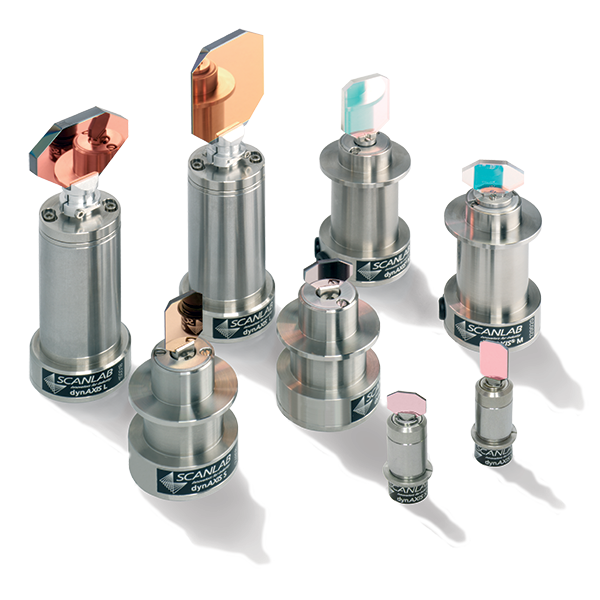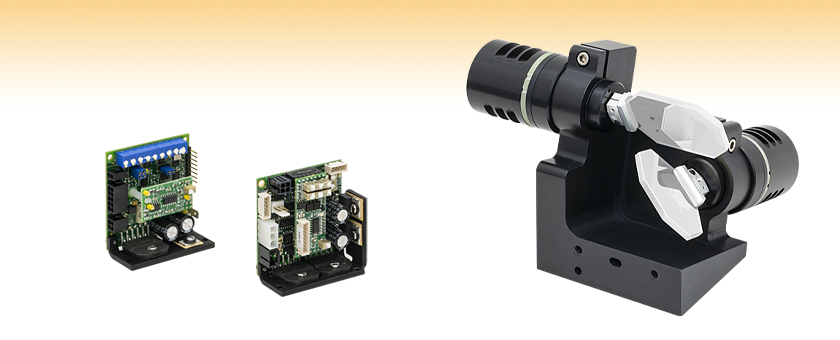The Relevance of Calibration in Optimizing Your Galvanometer Scanner's Efficiency
The Relevance of Calibration in Optimizing Your Galvanometer Scanner's Efficiency
Blog Article
Exactly How a Galvanometer Scanner Improves Performance in Laser Scanning Technologies
The integration of galvanometer scanners in laser scanning modern technologies represents a critical improvement in accuracy design. By facilitating accurate and quick adjustments of laser light beam direction, these devices substantially enhance functional performance throughout various applications, from clinical imaging to commercial inscription.
Understanding Galvanometer Scanners
A galvanometer scanner is an innovative gadget that leverages electro-magnetic principles to accomplish exact angular motion of mirrors or various other reflective surfaces. These scanners run with the communication of an electrical current and a magnetic field, allowing accurate and rapid positioning. This modern technology is important in applications needing high-speed scanning, such as laser inscription, optical communication, and medical imaging.

Galvanometer scanners are frequently defined by their fast response times and high angular resolution, making them excellent for applications that require quick activities and precise positioning. Their dependability and efficiency make them a crucial part in modern laser scanning innovations, adding dramatically to improvements in numerous fields, consisting of manufacturing, health care, and telecommunications.
Device of Laser Beam Of Light Control

The control device counts on closed-loop responses systems that continuously check the beam's position. The signals from optical sensors offer real-time data to the control system, allowing for rapid adjustments to keep accuracy. This is vital in applications where also small inconsistencies can jeopardize the high quality of the scan or engraving.
In addition, the galvanometer's reaction time is critical; high-speed motors enable quick activities, making certain that the laser light beam can swiftly map complex patterns or perform detailed procedures. The assimilation of digital signal handling better improves the responsiveness and accuracy of the galvanometer scanner. Overall, the device of laser beam of light control with galvanometer scanners exhibits the blend of innovative engineering and technology, yielding high-performance results in laser scanning applications.
Benefits of Boosted Precision
Improved precision in laser scanning modern technologies supplies significant benefits throughout different applications, from commercial manufacturing to clinical procedures. The assimilation of galvanometer scanners permits extremely precise light beam positioning, which is important for jobs needing precise information. This enhanced accuracy guarantees that the laser can target particular locations with minimal variance, resulting in exceptional top quality outcomes.
In industrial contexts, exact laser scanning leads to enhanced product consistency my explanation and minimized material waste. In clinical applications, the precision of laser procedures can substantially influence client results.
Moreover, boosted accuracy assists in innovative applications such as 3D imaging and microfabrication, where also minute inaccuracies can cause significant mistakes. By giving repeatable and reputable laser positioning, galvanometer scanners add to the overall efficiency and performance of laser systems. In summary, the benefits of improved precision not only enhance operational performance yet additionally boost the requirements of top quality and safety in numerous fields.
Applications in Different Industries
The convenience of galvanometer scanners in laser scanning innovations prolongs throughout multiple industries, each taking advantage of the accuracy they offer. In the clinical field, these scanners are pivotal in applications such as laser surgical treatment and imaging, enabling highly exact targeting of tissues while reducing damages to surrounding areas - galvanometer scanner. Their quick reaction and fine resolution are vital in creating top quality results
In the manufacturing market, galvanometer scanners boost processes like laser inscription and cutting. Their ability to swiftly direct laser beam of lights onto surface areas allows effective manufacturing lines, enhancing speed and accuracy in producing detailed styles or parts.
The auto industry additionally takes advantage of galvanometer modern technology for quality assurance and examinations (galvanometer scanner). By using high-speed scanning, Get More Information manufacturers can spot defects in assemblies or materials, making sure that items satisfy stringent requirements
Additionally, in the entertainment industry, galvanometer scanners are utilized in laser light shows and displays, providing dynamic visual experiences with accurate control over laser activities.
Future Fads in Laser Scanning
Emerging modern technologies are positioned to change the landscape of laser scanning, with galvanometer scanners at the forefront of this makeover. As markets significantly require precision and performance, the advancement of galvanometer modern technology will drive substantial developments in laser scanning applications.
Future trends suggest an expanding assimilation of expert system and artificial intelligence algorithms, which will certainly enhance information refining capacities and automate decision-making in real-time. This synergy will permit more advanced evaluation of checked data, bring about boosted accuracy in applications such as 3D modeling and self-governing navigation.
In addition, the miniaturization of elements and the advancement of innovative products will certainly add to lighter, more mobile laser scanning systems. This mobility will broaden the reach of laser scanning innovations into formerly unattainable settings, such as remote surface and complex building rooms.
The increase of enhanced reality (AR) and online reality (VR) applications will certainly likewise shape the future of laser scanning. By integrating galvanometer scanners with AR and virtual reality, users will profit from immersive experiences that enhance visualization and task preparation.
Verdict
In verdict, galvanometer scanners play a pivotal function in enhancing laser scanning technologies with their accurate control of beam of light direction and fast angular changes. The combination of innovative responses systems and optical sensing units dramatically boosts functional rate and accuracy, resulting in improved end results in applications such as laser inscription and medical imaging. As industries increasingly embrace these modern technologies, the recurring advancements in galvanometer scanner layouts are expected look at this now to more boost performance requirements and widen application possibilities.
The assimilation of galvanometer scanners in laser scanning innovations stands for a critical improvement in precision engineering. In general, the mechanism of laser beam control through galvanometer scanners exemplifies the fusion of sophisticated engineering and technology, producing high-performance end results in laser scanning applications.
By offering trusted and repeatable laser positioning, galvanometer scanners contribute to the overall efficiency and efficiency of laser systems.The flexibility of galvanometer scanners in laser scanning technologies expands throughout multiple industries, each benefiting from the accuracy they provide.In final thought, galvanometer scanners play a crucial role in maximizing laser scanning technologies with their specific control of beam instructions and fast angular adjustments.
Report this page